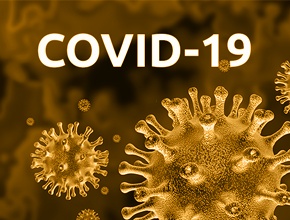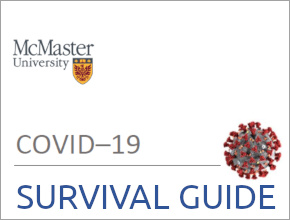Tofacitinib in the in-hospital treatment of COVID-19 pneumonia
A McMaster Perspective interview on the use of tofacitinib in the in-hospital treatment of COVID-19 pneumonia will follow soon.
Background: Janus kinase inhibitors (or jakinibs), which include tofacitinib and upadacitinib, are orally administered tyrosine kinases that block cellular responses to numerous cytokines and growth factors. They are used for the treatment of rheumatoid and other types of inflammatory arthritis. In the STOP-COVID (Tofacitinib in Hospitalized Patients with COVID-19 Pneumonia) trial, tofacitinib was investigated for the treatment of patients with coronavirus disease 2019 (COVID-19) pneumonia.
Methods: Hospitalized adults with COVID-19 pneumonia were randomly allocated to receive tofacitinib 10 mg or placebo bid for up to 14 days or until hospital discharge. Patients were excluded if they required noninvasive or invasive mechanical ventilation or extracorporeal membrane oxygenation, or if they had current or prior history of thrombosis. The primary outcome was death or respiratory failure at 28 days of follow-up.
Results: In total, 289 patients were enrolled, of whom 89% received glucocorticoids and 13%, the antiviral agent oseltamivir. The cumulative incidence of death or respiratory failure at 28 days was significantly reduced in the tofacitinib group (18.1% vs 29%; risk ratio [RR], 0.63; 95% CI, 0.41-0.97). There was no significant effect on all-cause mortality (2.8% vs 5.5%; hazard ratio [HR], 0.49; 95% CI, 0.15-1.63). The rate of serious adverse events was not significantly different in the tofacitinib and placebo groups (14.1% vs 12%).
Conclusions: The authors concluded that in patients hospitalized with COVID-19 pneumonia who were moderately ill tofacitinib use was associated with a lower risk of death or respiratory failure.
McMaster editors' comment: Another randomized trial assessed the efficacy of baricitinib when added to remdesivir in patients with COVID-19 pneumonia who were receiving high-flow nasal oxygen (doi: 10.1056/NEJMoa2031994). In that study, compared with treatment with remdesivir alone, patients receiving high-flow oxygen or noninvasive ventilation who were treated with baricitinib and remdisivir had improved recovery time (from 18 to 10 days, on average), but in the overall study population there was no significant reduction in mortality (5.1% vs 7.8%). Taken together, these studies indicate the importance of patient selection when considering treatment options for COVID-19 pneumonia, as there may be a “sweet spot” during the clinical course of COVID-19 when jakinibs are most likely to provide benefit. The high cost (>2,000 United States dollars for 2-week supply) of these agents should also be considered.
 English
English
 Español
Español
 українська
українська










